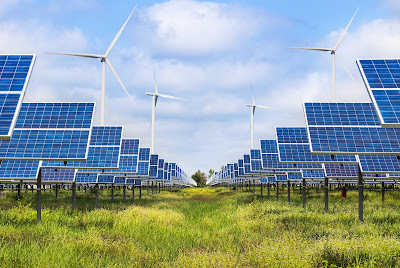By Sudarsan Pattabiraman (Broker / M&A Advisor) | 510.944.5616 | sudarsan@upclinch.com
The outlook for the clean energy industry under a conservative ruling majority in the U.S. in 2024 is nuanced, influenced by the specific policies and priorities of the administration. While conservatives have traditionally favored fossil fuels and deregulation, recent trends show growing bipartisan support for certain aspects of clean energy, driven by economic opportunities, energy security, and technological innovation
Reasons to Be Bullish
1. Market-Driven Growth
- Clean energy
sectors, especially solar and wind, have achieved significant cost reductions,
making them competitive with fossil fuels even without subsidies. The market
demand for these technologies continues to grow, regardless of political
leadership.
- Private
investment in clean energy remains strong, with institutional investors
prioritizing Environmental, Social, and Governance (ESG) factors.
2. Energy Security Priorities
- Conservatives
often emphasize energy independence, and clean energy technologies such as
solar, wind, and battery storage can play a critical role in reducing reliance
on foreign energy sources.
- Domestic
manufacturing incentives for clean energy technologies could align with
conservative goals of bolstering U.S. industries.
3. State and Local Policies
- Many states,
including conservative-leaning ones, have embraced renewable energy standards
and incentives, ensuring continued clean energy development regardless of
federal policy.
- Utilities in
these regions increasingly adopt renewables as part of their energy portfolios
due to consumer demand and cost advantages.
4. Rising Public and Corporate Support
- Public opinion
across political lines is shifting toward support for clean energy due to
concerns about extreme weather, energy costs, and job creation.
- Corporations,
including many based in conservative states, have set ambitious renewable
energy goals, driving demand for clean energy projects.
Reasons to Be Cautious
1. Reduced Federal Support
- A conservative
majority may roll back or reduce federal tax credits and subsidies for
renewable energy projects, which have been critical to their rapid growth.
- Policies
prioritizing oil, natural gas, and coal development could limit federal
incentives for clean energy infrastructure.
2. Regulatory Challenges
- Conservatives
often advocate for reduced regulation in general, but they might ease
permitting processes for fossil fuel projects at the expense of clean energy
initiatives.
- Slower progress
on grid modernization or transmission line development could hinder clean
energy expansion.
3. Climate Policy Deprioritization
- If climate action
is not a primary focus, federal funding for research, development, and
deployment of next-generation clean energy technologies might decline.
- Opposition to
international climate agreements could reduce the U.S.'s role in global clean
energy markets.
4. Preference for Traditional Energy
- Conservatives may
focus on preserving jobs and investments in traditional energy industries,
particularly in coal, oil, and natural gas, potentially diverting resources and
political capital away from renewables.
Summary: A Balanced Outlook
While a conservative majority could introduce headwinds for
federally driven clean energy policies, the industry’s momentum is likely to
continue due to market forces, private investment, and state-level initiatives.
Businesses in the clean energy space should focus on:
- Capitalizing on bipartisan opportunities, such as energy
storage, domestic manufacturing, and grid resilience.
- Leveraging cost competitiveness to compete without heavy
reliance on federal incentives.
- Building partnerships with conservative constituencies by
emphasizing job creation, energy security, and economic benefits.
The clean energy industry’s adaptability and growing economic relevance suggest a cautiously bullish stance, even under a conservative administration
Contact Sudarsan for planning and executing your perfect exit / strategic acquisition. Schedule time to unlock the business value and realize it for the benefit of you, your family and your community. Email:sudarsan@upclinch.com Phone: 510.944.5616




No comments:
Post a Comment